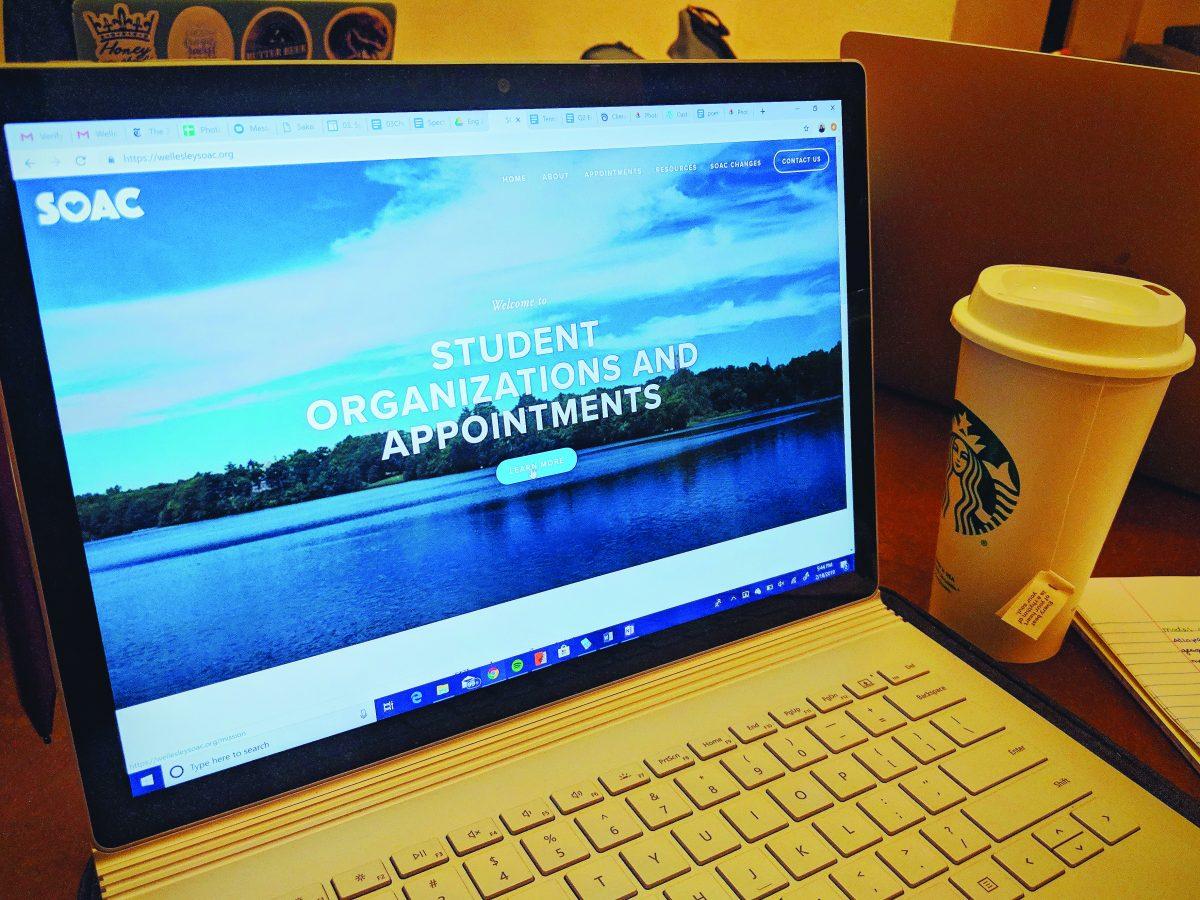At the end of the fall semester, 88 percent of Wellesley College senators voted in favor of an amendment that will change how student organizations (orgs) are recognized on campus. Though these changes have yet to be enacted, they provide an important step in making the student org constitution process more efficient. The amendment was proposed by College Government Vice President (CGVP) and Student Organizations and Appointments Committee (SOAC) Chair Safiaa Masoom ’20. Along with Masoom, members of SOAC have also been working diligently to pursue these new changes. Current e-board members include Diana Lam ’20, Emily Pearson ’20, Felicity Pollard ’21, Erika Herman ’21, Maria Anderson ’21, April Chu ’21, and Emily Quin ’22.
According to Masoom, the current org constitution process can be described as archaic and bureaucratic at best. In order for an org to become constituted, its leaders must submit an application to SOAC. The org is encouraged to hold regular meetings and events before submitting an application in order to increase its chances of becoming constituted. The application consists of three lengthy forms and a 5 to 8 minute presentation in front of SOAC detailing what purpose the proposed org fulfills. Then, the org must enter a two semester trial period before becoming fully constituted. After the trial period, the organization presents its case for constitution to senate, and senators must approve the organization in order for it to be officially constituted.
Constituted orgs receive a wide range of benefits unavailable to unconstituted orgs. Constituted orgs can use the Wellesley College name in their title, meet in designated College facilities, receive official recognition in Wellesley College publications and perhaps most importantly, receive funding from the Students Organizations Funding Committee (SOFC). Examples of constituted orgs include Art Club, Sexual Assault Awareness for Everyone (SAAFE) and Darshana. Unconstituted orgs do not receive funding from SOFC. Examples of unconstituted orgs include Botanistas, Girl Up and Raíz. It is challenging for unconstituted orgs to become constituted because acquiring funds for large-scale events that are necessary for a successful application is challenging. Despite this fact, some unconstituted orgs decide to keep their independent status because it better fits their needs as an organization. For example, the Student Labor Action Project (SLAP) elects to remain unconstituted (or independent) in order to avoid institutional procedures. Despite this fact, most orgs that exist on Wellesley’s campus are in fact constituted.
The new org recognition process features several key changes. First, constituted orgs will no longer be called constituted but rather “recognized” orgs. This change in name reflects the fact that so much more goes into creating a successful organization beyond whether it has a formal constitution or not. The new process begins when students interested in starting an org reach out to SOAC to schedule a meeting. SOAC Organization Coordinators will then inform the students about the application process and talk about what resources can be used to meet their needs. At this time, students will also receive a designated “campus partner.” Campus partners are several offices and individuals on campus who have agreed to support the needs of student-led campus organizations. Each campus partner will be given a specific category of orgs to advise. For example, the Office of Religious and Spiritual Life (ORSL) will be in charge of advising religious orgs while the Office of Student Involvement (OSI) will advise performance orgs. Other campus partners include the Office of Civic Engagement and Physical Education, Recreation, and Athletics (PERA).
Though meetings with campus partners are required, they are intended to provide student organizations and their leadership boards with feedback and support. According to Masoom, campus partners “are meant to provide an additional support for students, introducing them to all of the optional resources on campus to help them meet their organization’s goals.” After the initial meeting with the campus partner, students will then complete an application and send it to SOAC, who will review and vote on it. If an org then becomes recognized, it will have access to a SOFC profits account, 25Live space reservations, Senate representation, a Wellesley College domain organization email and use of College name, table at the SOAC Organizations Fair and a page on the upcoming org management tool. In addition, recognized orgs will decide whether to apply for the following optional add-ons: locker space at Lulu Chow Wang Campus Center or funds general SOFC funds through the normal application or a $125 automatic SOFC grant for smaller organizations. In return, recognized orgs will be required to have a President, Treasurer, Event Manager and Publicity Chair.
This process began in Feb 2018 with last year’s CGVP (Karen Su ’19). Masoom decided to continue working on the changes this year. According to Masoom ’20, the changes are long overdue. “We wanted to cut down on so much of the unnecessary bureaucracy that surrounds the org constitution process” Masoom says. Initially, SOAC planned to roll out changes at the beginning of the spring semester, however, it has been difficult to get the process started. “I realize it was a tad idealistic to expect all these changes to be made so soon in the beginning of the semester. There really is a lot of moving parts and resources that need to connect to make this happen,” Masoom said. Currently, Masoom hopes to begin recognizing orgs before Spring Break.
Overall, responses from the student body have been generally positive. Speaking of the changes, Mariel Rojas ’20 says, “This is potentially a great opportunity for orgs that aren’t constituted yet to receive recognition. Since SOFC has a limited budget, when it comes to funding, some orgs request more than they need, and this affects how much money is available for other orgs to receive. I like the flexibility that we can apply for funding for things that we need, and I think this new process will cut down on a lot of the unnecessary bureaucracy.”
For more information about the new recognition process, please visit wellesleysoac.org






